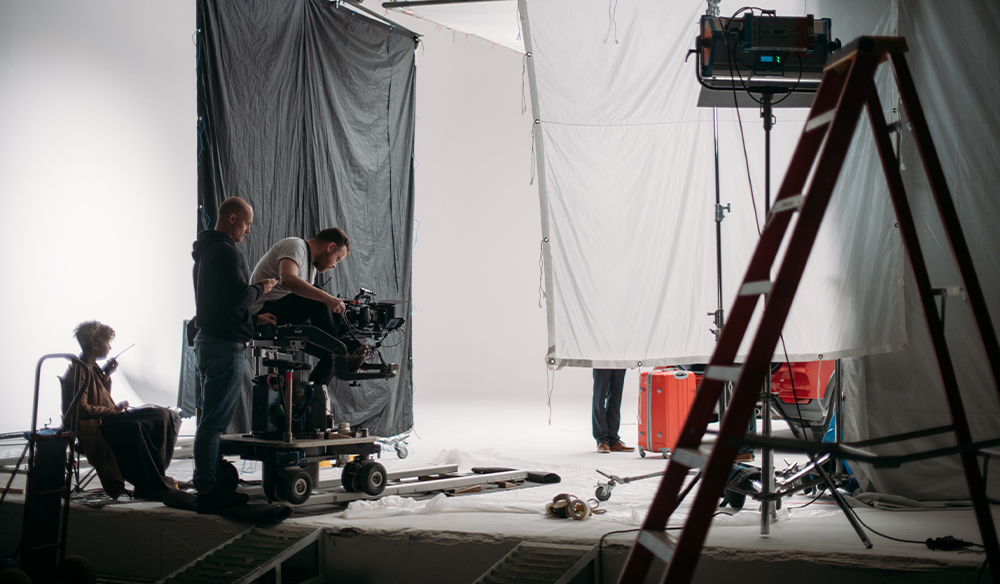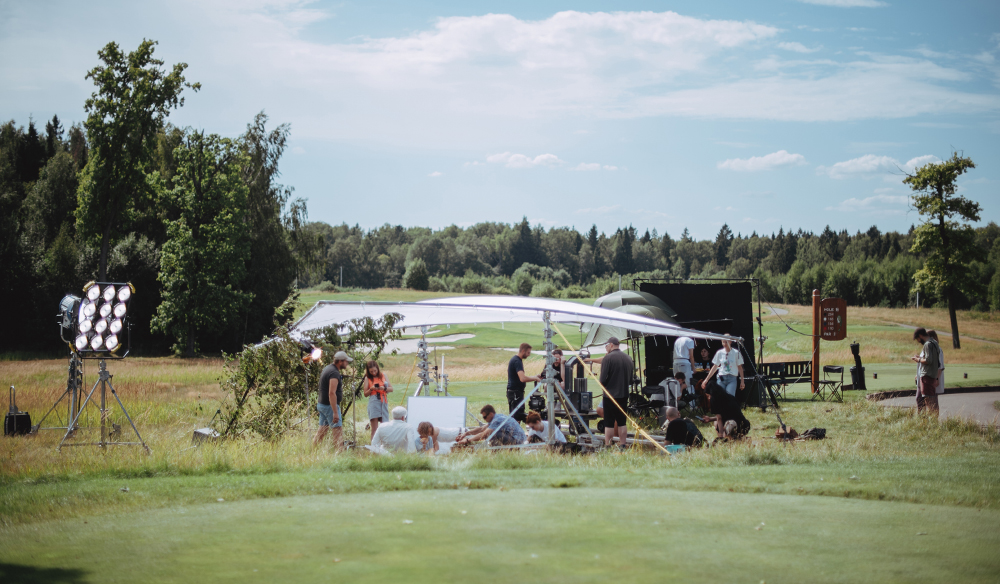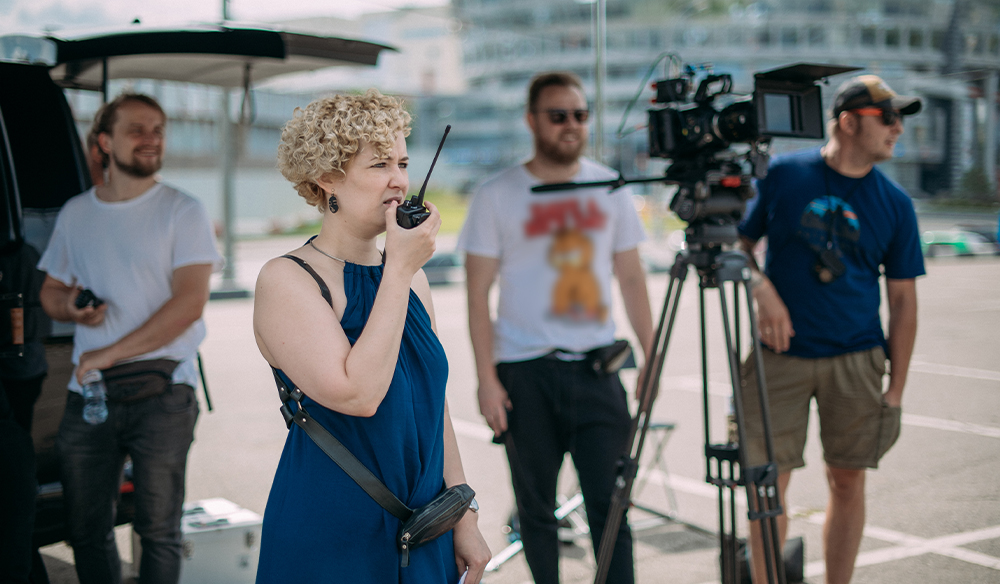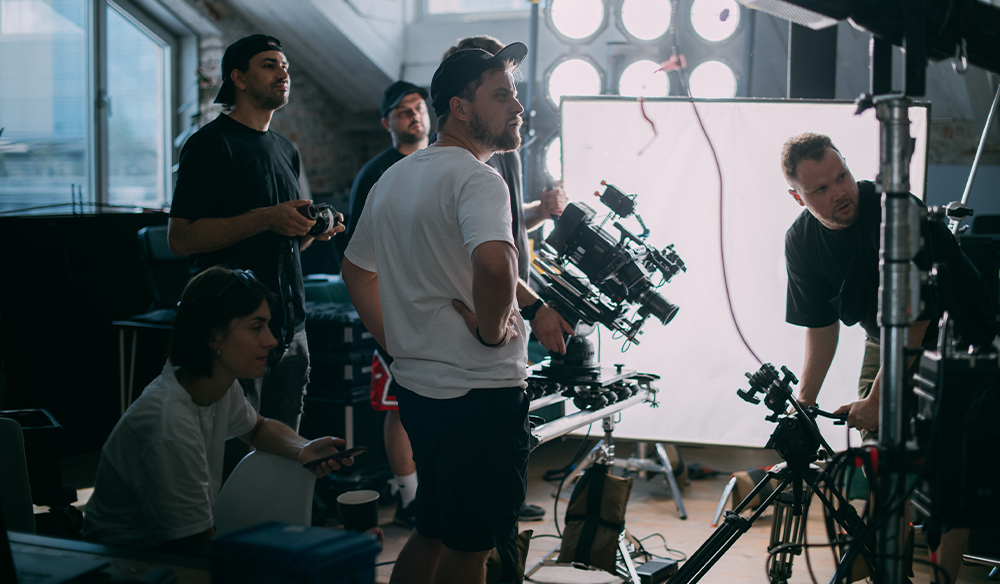The credits of a movie are an essential part of the film, recognizing the hard work and talent of all the individuals who brought the story to life. The length of the credits can vary greatly, with some films having a seemingly never-ending scroll of names while others have a much shorter list. For the most part, the roles are self-explanatory. The director directed the movie. The scriptwriter wrote the screenplay. And the sound mixer, well, they mixed the sound.
But what about the executive producer? We can gather that they produced the movie, and the executive producer title sounds very important, but what exactly does that entail?
In brief, an executive producer (EP) is a person who helps oversee the overall production of a film, television show, or other media project. The role of an executive producer can vary depending on the project and the individual. Still, they are typically responsible for managing the budget, securing funding, and ensuring the project stays on schedule. They may also be involved in the creative process, offering feedback and suggestions on the script, casting choices, and other production elements—for better or worse.
In some cases, an executive producer may also be involved in the marketing and distribution of the project, working with the studio or network to promote the film or show. Additionally, executive producers often have a financial stake in the project, providing them an added incentive to ensure its success.

They need to be people with good connections within the film industry (it’s who you know) to secure the best actors and actresses and have links with investors. While you will mostly find that executive producers are distinctive individuals outside of the other roles within the industry, you will also often find veteran names within the film also serve as executive producers between projects. Prominent actors such as George Clooney, Will Smith, and Sandra Bullock have all produced films. Likewise, household-named directors like Steven Spielberg, Martin Scorsese, and Ron Howard are also seasoned executive producers.
Pre-production responsibilities
During pre-production, an executive producer is critical in ensuring that the project is adequately planned and executed.

Financing
The primary responsibility during pre-production is to secure funds. The Executive Producer (EP) can do this by:
- Funding the project themselves
- Sourcing funds from elsewhere, such as other film investors or production companies.
- Securing funding through the studio, whereby the EP will budget and present projected profit
Talent seeker
To secure funding, the EP will also have talent attached to the production to help entice any other financers. EPs can then:
- Source their production team if a Producer hasn’t already been hired (sometimes the producer hires the Executive Producer, even though the Producer will answer to the Executive Producer.)

Budget approval
- After the script breakdown, the line producer proposes an estimated budget to the EP and Producer(s). The budget will either be approved, or the EP will then decide and act on if more funding is needed
Equipment and Resource Procurement
- The executive producer works with the production team to secure the necessary equipment and resources for the project, such as cameras, lighting, and costumes.
Production responsibilities
During production, an executive producer plays a crucial role in ensuring that the project is on track and that the vision for the project is being realized. An executive producer’s critical responsibilities during production include the following.

Overseeing the Production Team:
The executive producer oversees the production team, ensuring that everyone works effectively and efficiently to meet deadlines and budget constraints.
Monitoring Progress
- The executive producer regularly reviews the footage and progress of the project, providing feedback and making adjustments as needed.
Problem-Solving
- The executive producer is responsible for solving any problems during production, such as weather delays, technical issues, or changes in cast or crew.
Discussing budget and business
- While production is going ahead, the EP will always be the go-to person involving business dealings. This will include budgeting for show-stopping scenes and may require them to step onto the set to visualize a potential shift in budget.
- They also make sure the producers are set and ready to go.
Branding
- The EP will ensure the production stays on brand with the production company and achieves the vision.
Approving Expenditures
- The executive producer approves expenditures, such as equipment rental, crew salaries, and location fees, ensuring they are necessary and within budget.
Maintaining Relationships
- The executive producer maintains relationships with key stakeholders, such as investors, studio executives, and distribution partners, keeping them informed about the project’s progress.
Making Decisions
- The executive producer makes key decisions about the project, such as changes to the script, casting decisions, or changes to the production schedule.
The goal of the executive producer during production is to ensure that the project is on track, that the vision for the project is being realized, and that the project is completed on time and within budget.
Post-production responsibilities
The post-production responsibilities of an executive producer can vary depending on the specific project and the producer’s level of involvement. Still, an executive producer is generally responsible for overseeing the post-production process and ensuring that the project meets the desired quality standards and is completed on time and within budget. Some of the typical post-production responsibilities of an executive producer include the following:
Reviewing and Approving Edits
- Depending on the level of involvement, the executive producer can review rough cuts and provide feedback to the editor and director, ensuring that the story is being told effectively and that the pacing and flow of the film are right.
Budget and Schedule Management
- The executive producer oversees the post-production budget and schedule, ensuring that the project stays within budget and is completed on time.
Final Approval
- The executive producer reviews the film’s final cut and provides final approval for release.
The specific responsibilities will depend on the nature of the project and the producer’s level of involvement.
Executive Producer vs. Producer
The roles of executive producers and producers in the film and television industry can be similar, but they are different in specific ways. The main differences between an executive producer and a producer are:

Responsibility
- An executive producer has a higher level of responsibility than a producer and is involved in the project’s overall creative and financial decision-making. A producer is responsible for day-to-day production management and ensuring the project is completed on time and within budget.
Involvement
- An executive producer is often less involved in the day-to-day operations of the production and may only become involved when there are significant decisions or problems to be solved. A producer is typically more engaged in the daily production operations and ensures that everything runs smoothly.
Authority
- An executive producer has more authority over the project and the final say in important decisions, such as casting and budgeting. A producer has less authority but is still responsible for making decisions that impact production.
There are also many different types of producers;
- Associate Producers (line managers) are second in command after the Producer and can have some control over smaller scenes and B-Roll footage where the director is absent.
- Co-Producer roles occur when there are two producers of equal power, so they share responsibilities.
- Coordinating Producers keep everyone on task; they need to be very organized and good at delegating. When production is significant, there will be a need for Coordinating Producers because the show will most likely have multiple producers.
- Line Producers can only work on one set at a time because they need to be on set at all times. They are the problem solvers and the go-to person(s) when something needs to be sorted out. They also have a say in what is spent during day-to-day filming. C
It is safe to say that the producers are at the top of the pyramid regarding the production hierarchy, with the EP sitting right at the top. There are many types of producers, but each has an essential role in keeping things running smoothly and efficiently. The bigger the production, the more likely it is to see more producers. This leads us nicely to where the Director would be in this hierarchy pyramid, and what is the difference between the two?
Executive Producer vs. Director

The roles of executive producers and directors in the film and television industry are distinct, but they often overlap and interact with each other in the production process. The EP manages the business, and the Director oversees the creative decisions. Both Director and EP, along with the many other producers, need to have a positive working relationship, so the Director’s vision is brought to life successfully with the help of the producers. The Director’s roles are:
- Work alongside screenwriters to develop the script
- Collaborate with the artistic team to develop the style and creative vision
- Casting roles and talent seeking
- Direct the actors/actresses and camera crew
- Help edit the film during its final stages
Now that you know the role of an EP, the different kinds of producers, and their differences, you may wonder, “How do I become an Executive Producer?” Luckily for you, we have the requirements outlined below.
Skills to become an Executive Producer
Overall, an EP takes on a vital role that can determine the time frame of the production, the overall quality, and how it is run. Because the EP is essentially the business manager of the production, how fast or successful the production starts depends on them. An EP must:
- Have an extensive understanding of money and finance, and should be comfortable negotiating deals that involve large sums of money (especially if you are working as a film EP.)
- Be experienced in their field (such as having worked at the production level on previous shows.)
- (Desirable but not essential) hold a degree in a relevant field such as Film, TV, Media, or Marketing.
- Have marketing experience.
- Have personal links within the film industry to talent seek (both performers and crew).
- Be organized to ensure the production beings promptly.
- Have the ability to delegate and manage others.
We suggest checking out our guide to help point out ways to make you stand out from the crowd as an EP.
So, now that you’ve read our complete guide on what an Executive Producer does, you can show off your knowledge to your friends at the cinema or at least answer an EP question on Trivial Pursuit. Whether you aim to become the next George Lucas or to be an EP on smaller production, the same set of skills apply – no matter the scale of the production. What kind of salary could you expect if you bagged an EP role? According to Glassdoor, the average EP salary in London is £75000 as of 2022.
All Images via Shutterstock.
For more industry articles, check out these:

